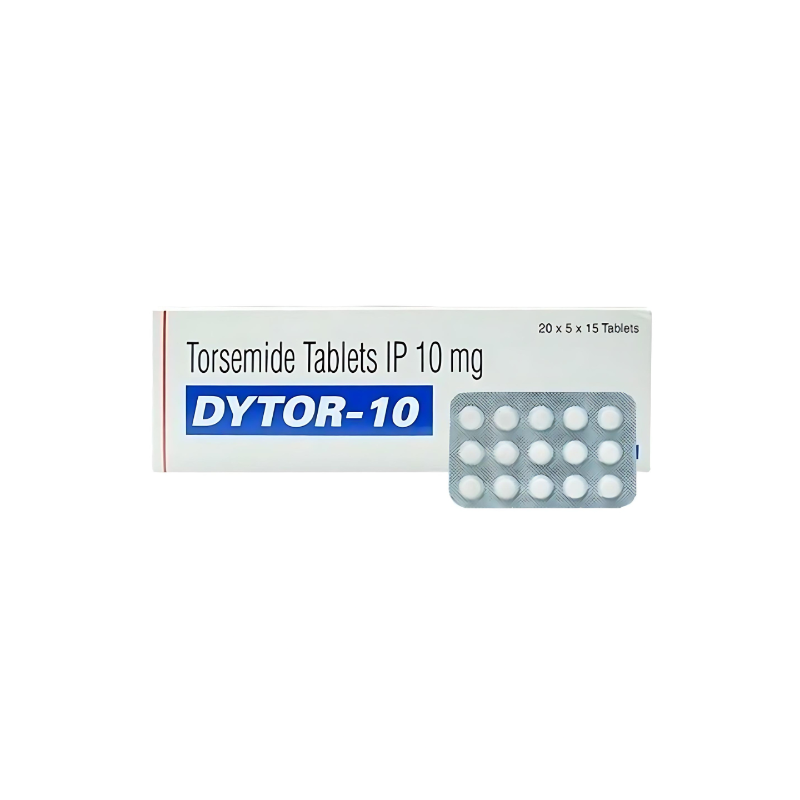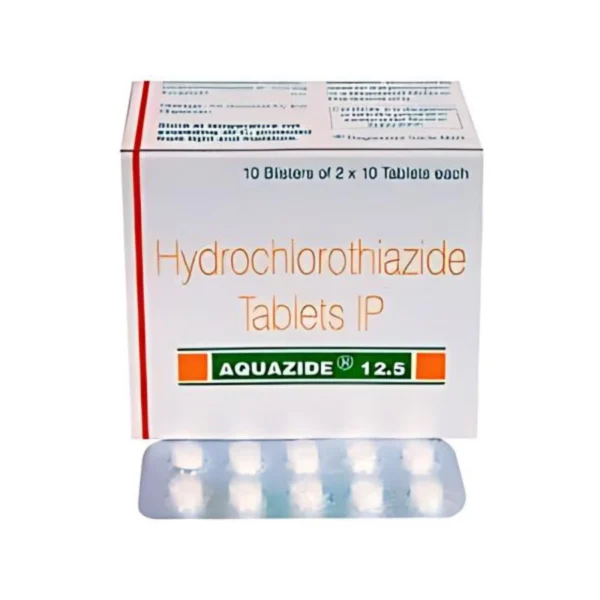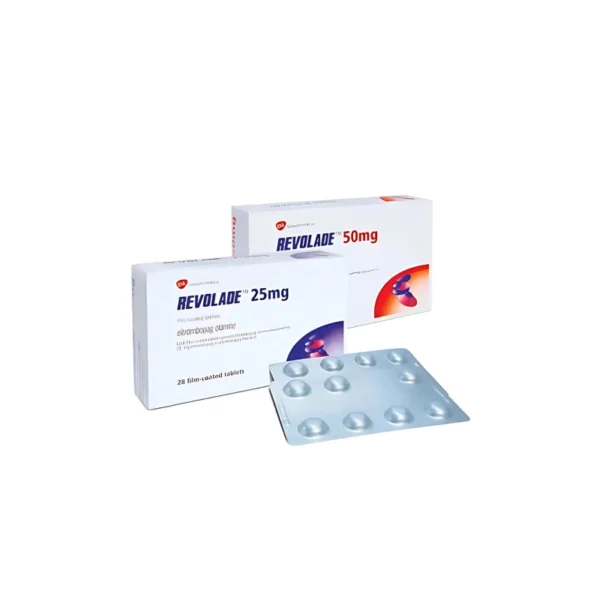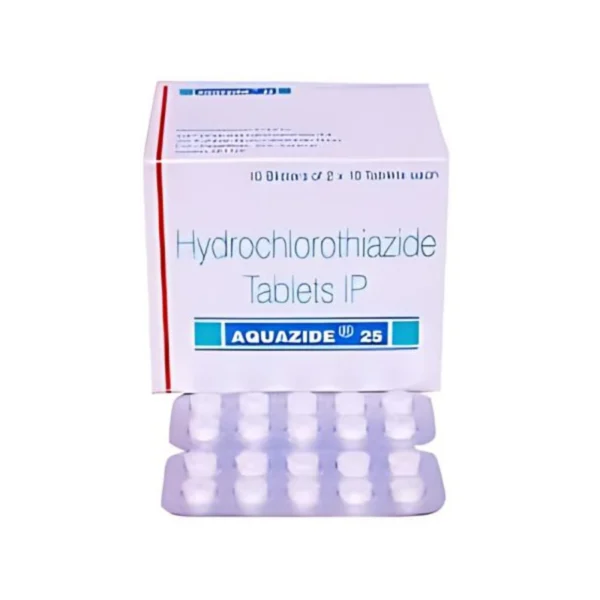FLAT 10% OFF ON YOUR FIRST ORDER. USE IVER10
Dytor 10 mg Tablet (Torasemide 10 mg)
Price range: $23.00 through $57.00
Dytor 10 Tablet contains Torasemide, a potent diuretic used to treat edema caused by fluid retention and to control high blood pressure. It works by promoting the removal of excess water and salt through urine, helping reduce swelling in the limbs and abdomen and lowering blood pressure effectively. Ideal for managing conditions like congestive heart failure, liver cirrhosis, and kidney disease, Dytor 10 provides rapid relief from fluid buildup and improves overall comfort and mobility. Taken once daily, preferably in the morning, it is important to follow the prescribed dosage and maintain a low-salt diet for optimal results.
- Buy 2 and get Flat 15% Off. Use B2SAVE15
- Buy 3 and get Flat 20% Off. Use B3SAVE20
Dytor 10 Tablet (Torasemide) – Diuretic for Edema & Hypertension Treatment
Dytor 10 Tablet is a high-potency diuretic (water pill) used to treat fluid retention (edema) linked to heart failure, liver cirrhosis, or kidney disease. It also effectively manages high blood pressure (hypertension). By promoting excess water and salt removal through urine, this tablet alleviates swelling in limbs/abdomen and reduces blood pressure. Take it once daily, with or without food, but preferably in the morning to avoid nighttime urination. Consistent use is crucial—even if symptoms improve—to prevent condition worsening. Complement treatment with low-salt diets, stress management, and smoking cessation for optimal results.
Uses of Dytor 10 Tablet:
- Hypertension (high blood pressure control)
- Congestive heart failure
- Edema (swelling due to fluid retention)
- Hypercalcemia (high blood calcium levels)
Benefits of Dytor 10 Tablet:
For Edema Relief: Rapidly reduces swelling in legs, arms, or abdomen by flushing out excess fluids, improving breathing capacity and mobility. Enhances daily activity performance and comfort.
Side Effects of Dytor 10 Tablet:
Common temporary effects (usually mild):
- Headache or dizziness
- Dehydration or dry mouth
- Low blood pressure
- Constipation/nausea
Rare but serious: Electrolyte imbalance, skin rashes, irregular heartbeat. Seek medical help if these occur.
How to Use Dytor 10 Tablet?
Swallow the tablet whole with water, as prescribed (typically once daily). Avoid crushing/chewing. Morning doses are ideal to prevent sleep disruption from frequent urination.
How Dytor 10 Tablet Works?
As a loop diuretic, it blocks sodium/chloride absorption in kidneys, forcing excess water and electrolytes (potassium, calcium) to exit via urine. This reduces fluid buildup and blood pressure.
Safety Advice:
- Alcohol: Avoid or consult doctor—may worsen dizziness.
- Pregnancy: Prescribed only if benefits outweigh risks.
- Driving: Unsafe if dizziness/blurred vision occurs.
- Kidney/Liver Disease: Safe but requires monitoring; dose adjustments may apply.
- Breastfeeding: Limited risk, but consult physician.
What If You Miss a Dose?
Take it as soon as remembered. If near the next dose time, skip the missed dose. Never double dose to compensate.
Drug Interactions:
High-risk combinations:
- Tobramycin: May cause kidney/ear damage.
- Lithium: Can trigger toxicity (confusion, tremors).
- Dexamethasone/Chloroquine: Lowers potassium dangerously.
Always disclose all medications to your doctor.
FAQs:
Q1: Does Dytor 10 Tablet increase blood sugar?
Yes, it may elevate glucose levels. Diabetics should monitor blood sugar regularly during therapy.
Q2: Can Dytor Tablet damage kidneys?
Prolonged use may temporarily raise creatinine levels, but these normalize after discontinuation. Kidney function tests are recommended during treatment.
Q3: Why does it cause potassium loss?
Excessive fluid removal can deplete potassium. Your doctor may prescribe supplements or potassium-rich foods (bananas, spinach).
Q4: Can I stop if my BP is normal?
No—sudden discontinuation may reverse progress. Consult your doctor for dose adjustments.
Q5: Is Dytor stronger than furosemide?
Equally effective, but Dytor 10 Tablet’s effects last longer. Choice depends on individual patient needs.
Q6: Best time to take Dytor Tablet?
Morning doses are ideal to minimize sleep disruption from frequent urination.
| Pack Size | 30 Tablets, 60 Tablets, 90 Tablets |
|---|










Reviews
There are no reviews yet.